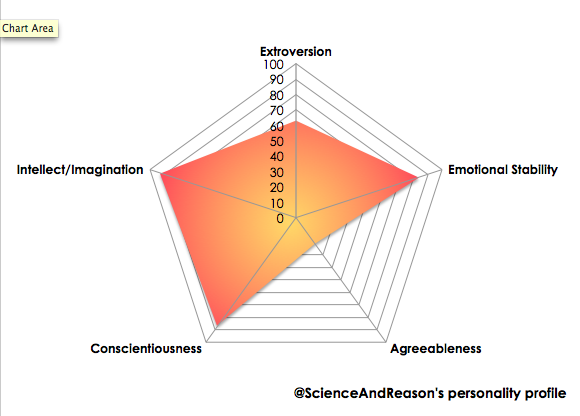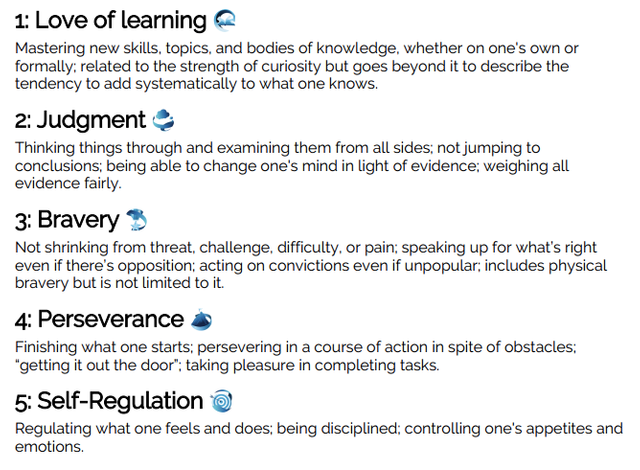Hello Steemians,
I research how the mind and brain work, what is happening when people have psychological problems, and how we can develop new treatments to tackle these issues.
On my Steemit blog (@ScienceAndReason) I aim to provide interesting, informative, and scientifically-based content about the areas of psychology and neuroscience that I find most fascinating, and which I think you will too. My goal is that if you read an article by me you will take away at least one cool new piece of information, novel idea, or different perspective, than you had before you read it.
I will cover topics ranging from how psychedelic drugs work to how we store and change memories over time. If I think they are interesting or can add a fresh perspective, I will also cover other areas such as philosophy or discussion of cultural trends.
I jumped into the cryptocurrency sphere in mid-2017 (a bit of a latecomer to the party), but only recently took notice of Steem.
Although I’m still getting to grips with how all this works, I’m excited by the prospect of Steem for combating the ad-based model that makes up much of the current internet. I’ve previously conducted research on how unhealthy products are aggressively marketed to specific populations in traditional media (like TV ads and product placements), and am becoming more and more aware of how social media and other new technologies are being corrupted by the constant need to please advertisers (you can listen to a great in-depth podcast about this here: https://samharris.org/podcasts/what-is-technology-doing-to-us/). When ads are the center of a platform, you are not the user; you are the product. It seems to me that this can only lead to a misalignment of incentives and ultimately a broken system, where controversial ideas cannot be expressed and everything is geared towards maximizing attention, regardless of value.
I hope that Steem can become a place where people come for great content, and where the people producing it are appropriately rewarded.
At this stage, I intend to write anonymously, though I do appreciate all the reasons why it is preferred on a platform like this to be as open as possible. I have a couple of reasons. As part of my research I actually treat patients on a regular basis and they often look up everything they can find about me on the internet before they meet me! I don’t want people to take issue with opinions I express here, or otherwise just get information that might affect how we interact and potentially change our interactions/bias outcomes of our studies – it should really be as close to a blank slate as possible when we meet.
Secondly, I‘m in the early stages of my career as a researcher, and a misrepresented comment on a certain piece of research here, a misunderstood joke there…unfortunately these can have a big impact in the small community of researchers in my field.
So, I hope you can understand why I will write anonymously for now, as much as I can understand why it is a great thing for Steemians to post a selfie with a Steem introduction note held proudly aloft.
Still, I don’t want to be too impersonal. Instead of uploading a photo of myself, I’m going to share with you my profile from two very different personality questionnaires, which you can also take yourselves and potentially get some insight into your personality and character traits (I have nothing to do with the development of these questionnaires or their websites).
Firstly, I took the classic ‘Big 5’ personality questionnaire (you can take the test here: https://openpsychometrics.org/tests/IPIP-BFFM/):

This personality test is one of the most widely used and scientifically validated personality questionnaires in psychology. After answering a range of questions about yourself, you will be assessed on 5 main traits:
Intellect/Imagination aka Openness to Experience (whether you enjoy new perspectives, experiences, and tend to be curious and creative, or whether you have more narrow interests and tend to be more down to earth, rather than enjoying abstract ideas).
Conscientiousness (whether you tend to be orderly, organized, disciplined, and careful, or are more disorganized, possibly even unreliable!).
*I scored in the 87th percentile. I am very disciplined, but I might have answered more how I want to be…my desk is definitely not super organized right now!Extroversion/Introversion (whether you are sociable and outgoing, or more reserved, quiet, and introverted).
Agreeableness (whether your tend to be very respectful and sympathetic, or critical, argumentative, sometimes even rude).
*I scored in the 21st percentile, meaning I am pretty disagreeable. I frequently put my foot in my mouth disagreeing with people about things I should really just let pass!Emotional Stability/Neuroticism (whether you tend to be very calm and stable in the face of stress, or are more easily worried and emotionally unstable).
Remember that your results are not a psychiatric diagnosis or official assessment, just the results of one questionnaire. No particular personality type is necessarily better than others either, although, for example, people who score low on emotional stability might be more at risk of developing mental health problems related to anxiety or depression. Conscientiousness (along with intelligence) predicts success in many professions, but on the other hand extremely conscientious people might annoy others by being too rigid. Agreeableness is also a double-edged sword: people who are extremely disagreeable can be unnecessarily combative, but people who are too agreeable can be ‘pushovers’. Overly agreeable people often get through social situations smoothly but fail to advocate for themselves or their opinions, and may end up being undervalued, particularly in the workplace.
If you don’t know how ‘percentiles’ work to understand your own scores, it is pretty simple: you are being ranked relative to the many other people who have taken the test. If you score in, say, the 75th percentile on Agreeableness, that means that you are more agreeable than about 75% (or three quarters) of the other people, and less agreeable than about 25% (one quarter).
Secondly, I took the ‘via character’ strengths and virtues questionnaire (http://www.viacharacter.org/www/Character-Strengths-Survey - you have to give them an email address to fill this one out, but you don’t need to give your real name or anything).
This questionnaire is often used in workplace settings or in personal development to help people understand their strengths and weaknesses. It’s being used in research, but is not nearly as well established as the Big 5. At this stage, I see this questionnaire more as a bit of fun, but research suggests it may track a number of traits that people value across cultures, and can even predict outcomes (e.g., satisfaction) on top of information provided in standard personality questionnaires. You might find it more personal and perhaps therefore more interesting for you than the Big 5. Your answers on the questionnaire are used to rank your dominant ‘virtues’. What the survey says are my top 5 below, and there are 24 in total.

Interestingly, my colleagues and I all had very different top virtues, but we each thought ours were good and that other people would want to have the same things in their top virtues! The weakest virtue for all of us was Spirituality – the questionnaire seems to (wrongly) assume that you can’t find a higher purpose in life without faith or religion.
Okay, this was probably a bit of a weird and excessively long introduction! I hope you will learn some cool things from my writing, and I look forward to becoming a member of this community.
Please feel free to answer one of my questions for you :)
- What areas of science or philosophy are you most interested in, and what psychological phenomena would you most like to learn about?
- What’s the best piece of ‘psychological’ advice you’ve ever been given, and who gave it to you?
- Besides making content to the best of my ability, what can I do as a new Steem member to help this platform and community?

Nice to meet you @scienceandreason🙃
Welcome to Steemit!
Try to get a profile picture!
Take one from Instagram using my post:
https://steemit.com/steemit/@heiner/how-to-use-a-steemit-profile-picture-from-instagram
Downvoting a post can decrease pending rewards and make it less visible. Common reasons:
Submit
keep going ! ilike it
Downvoting a post can decrease pending rewards and make it less visible. Common reasons:
Submit
Thanks!
Downvoting a post can decrease pending rewards and make it less visible. Common reasons:
Submit
hallo @scienceandreason.
Downvoting a post can decrease pending rewards and make it less visible. Common reasons:
Submit
Nice! We can never have enough brains on steemit. Be welcome and enjoy!
Downvoting a post can decrease pending rewards and make it less visible. Common reasons:
Submit
Thanks for the welcome, looking forward to it!
Downvoting a post can decrease pending rewards and make it less visible. Common reasons:
Submit
Welcome to Steemit from Indonesia, this is an amazing platform for creativity and imagination. Share, comment and make friends
Downvoting a post can decrease pending rewards and make it less visible. Common reasons:
Submit
Excellent publication, Welcome to this community, I give you my vote of support and I invite you to follow me my friend, and here I leave one of my last publications https://steemit.com/spanish/@douglasbg/cupcakes-un-dulce- I work greetings
Downvoting a post can decrease pending rewards and make it less visible. Common reasons:
Submit
Interesting! Welcome to Steemit!
Downvoting a post can decrease pending rewards and make it less visible. Common reasons:
Submit